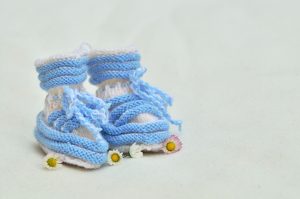What you should keep in mind in summer in Japan, especially when you are pregnant?
It’s now June! The hot and humid rainy season is coming soon. How are you doing?
The air temperature has changed drastically during the last month, hasn’t it? These changes affect everyone but pregnant women often particularly feel their body temperature rise. There are several reasons for this.
- Secretion of corpus luteum hormone (progesterone) in early pregnancy.
- Changes in hormone balance.
- Increased subcutaneous fat. This serves to protect babies during the second trimester of pregnancy.
- Active metabolism to change the intake of nutrients and fats to be stored easily and convert them into energy to provide for the lives of two people, you and your baby.
This temperature change makes women more likely to sweat. This means that more water is lost than before pregnancy. If you are suffering severe morning sickness and vomiting a lot, the risk of dehydration is much higher.
In addition, the volume of blood in your body gradually increases during pregnancy, and it becomes about 1.5 times in the 3rd trimester. This means that the amount of water you need to drink increases as your pregnancy progresses.
I know some people are reluctant to drink water because of frequent urination and swelling. But you really must drink adequate quantities of water, as you need enough blood for two people!
(Having said this, if the swelling or need to urinate frequently seems extraordinary, please consult your doctor.)
In general, water is sufficient. However, if you have been sweating a large amount, or if you have lost a lot of fluid due to vomiting, you might consider drinking an oral rehydration solution with a low sugar content that contains a well-balanced solution of electrolytes. For example, OS-1, which you can buy at drugstores. Some people don’t like the taste, but I quite like it!
In general, I’d recommend that you wear comfortable clothes, keep a comfortable room temperature, try to drink water regularly, and try to avoid sweating too much. This can make exercising difficult. I am going to write about what sort of exercises you can easily do in my next blog post.
By the way, because of covid-19, we have to live with the “new normal”. As you know, this includes the recommended wearing of face masks, which appear effective at reducing the spread of infection.
However, there is concern that wearing a facemask further increases the body temperature. Due to this, the Ministry of Health has released information about how to avoid heat stroke when using a face mask. Here is my summary of the main points:
Wearing a mask in an environment of high temperature and high humidity may increase the risk of heat stroke. So, if you can maintain a sufficient distance (at least 2m) from other people outdoors, remove the mask. Also, when you wear a mask, avoid heavy work or exercise, and keep hydrated even if you are not thirsty.
It is also necessary to take off your mask periodically and to take a break in a place where you can keep a sufficient distance from the people around you. For going out, avoid hot days and times, and wear cool clothes.
https://www.mhlw.go.jp/stf/seisakunitsuite/bunya/0000121431_coronanettyuu.html
As you can see, the key recommendation is that, when outside in hot conditions, you should remove the facemask when it is safe to do so.
I well understand the pain of maternity life in summer in Japan as I once gave a birth at the end of July. Please make sure to drink water and not to get dehydrated!


